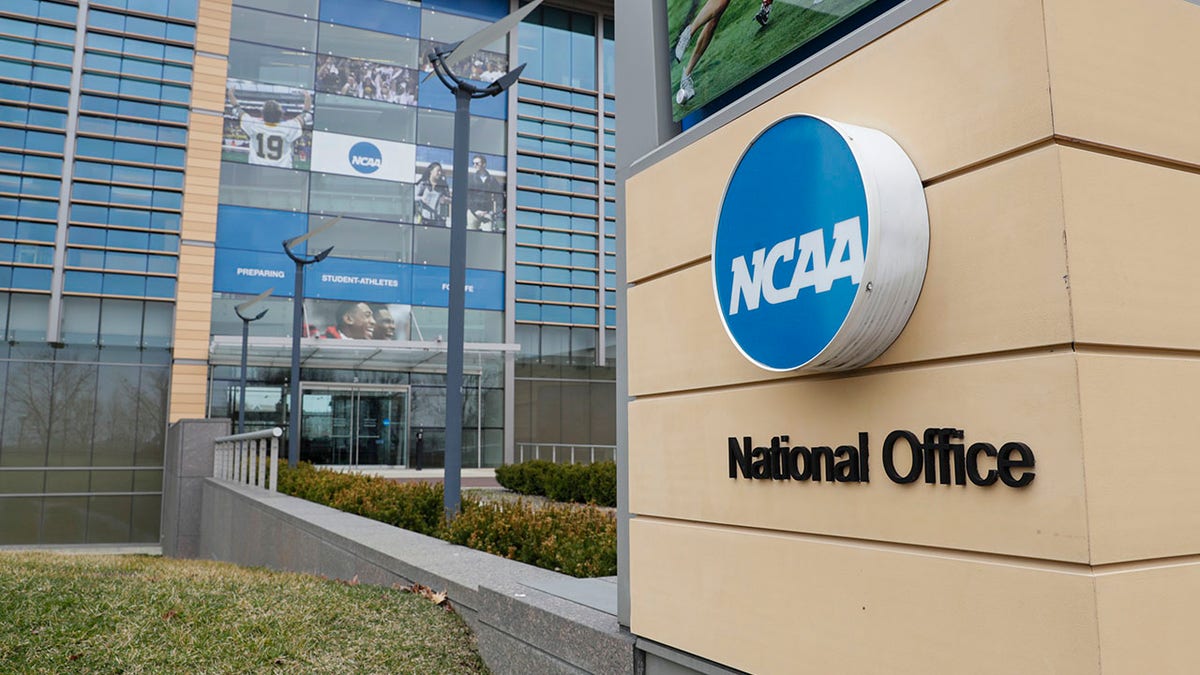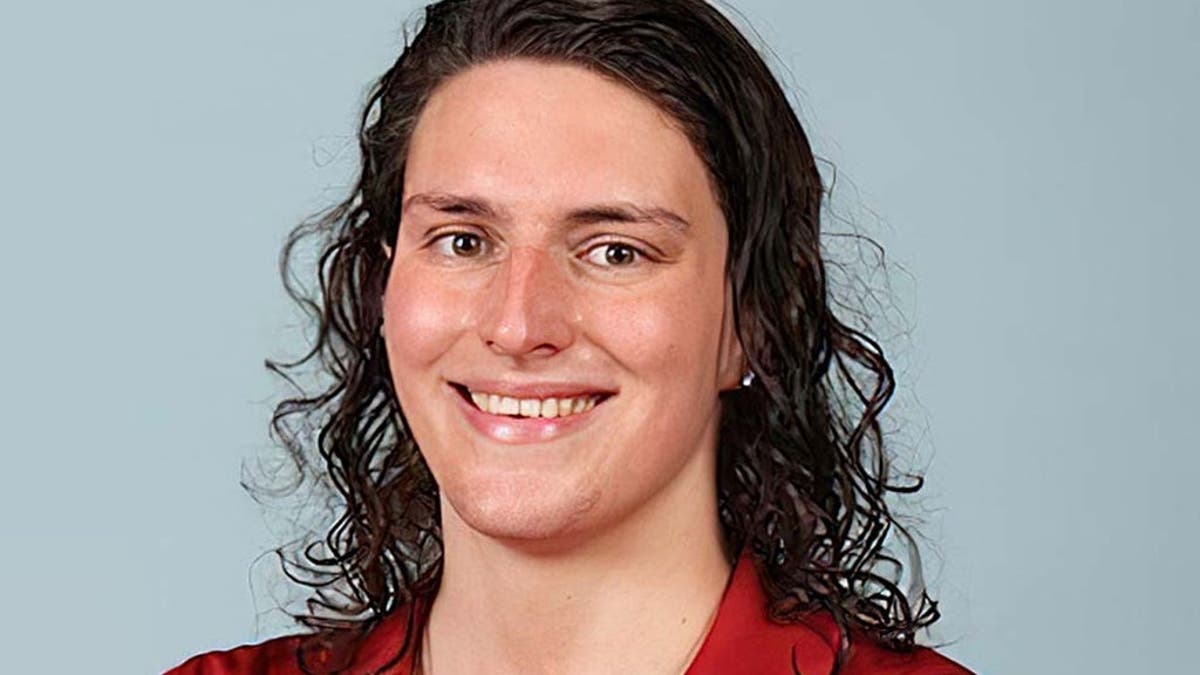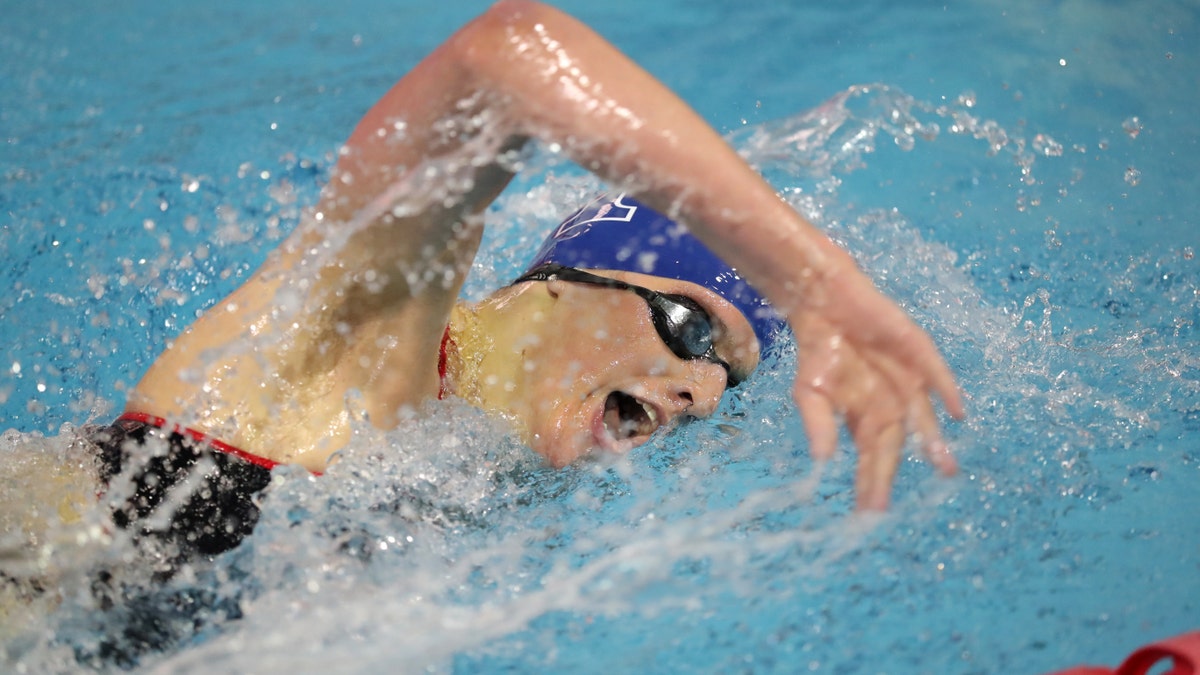NCAA board expected to debate their transgender policy after emergence of new research
Olympic gold medalist and Title IX advocator Donna de Varona discusses the NCAA board debating their transgender policy.
The NCAA changed its policy regarding transgender athletes, it announced Wednesday.
The new approach to allowing transgender athletes will follow a sport-by-sport model similarly adopted by the U.S. and international Olympic committees, Sports Illustrated reported. The NCAA said if there was no international federation policy then the "previously established IOC policy criteria would be followed."
CAITLYN JENNER: 'WOKE WORLD' NOT WORKING FOR WOMEN'S SPORTS
"We are steadfast in our support of transgender student-athletes and the fostering of fairness across college sports," John DeGioia, Georgetown University's president and the NCAA board's chairman, said in a statement Wednesday, announcing the change.
The new policy is effective immediately.

The NCAA headquarters in Indianapolis on March 12, 2020. (Associated Press)
TRANS WOMEN ATHLETES HOLD COMPETITIVE EDGE, EVEN AFTER TESTOSTERONE SUPPRESSION, SCIENTISTS SAY
The Board of Governors voted to pass the new policy as it "preserves opportunity for transgender student-athletes while balancing fairness, inclusion and safety for all who compete," according to the report.
"It is important that NCAA member schools, conferences and college athletes compete in an inclusive, fair, safe and respectful environment and can move forward with a clear understanding of the new policy," DeGioia added.

Lia Thomas swims for Penn. (Penn Athletics)
NCAA President Mark Emmert released a statement saying the new policy brings collegiate sports closer to Olympic standards.
"Approximately 80% of U.S. Olympians are either current or former college athletes," Emmert said. "This policy alignment provides consistency and further strengthens the relationship between college sports and the U.S. Olympics."
MICHAEL PHELPS SAYS CONTROVERSY SURROUNDING LIA THOMAS IS 'VERY COMPLICATED', CALLS FOR LEVEL PLAYING FIELD
The NCAA’s rules came into the national spotlight due to the emergence of Penn’s Lia Thomas. She started breaking Ivy League records with national records in the crosshairs. She was on the men’s team for her first three years but started on the Quakers’ women’s team this season after transitioning.
Her success this year ignited criticism over allowing transgender women to compete against biological females. Women’s sports advocates and parents at Penn have recently spoken out against the NCAA and its rules on transgender student-athlete participation.
The new NCAA policy means swimming athletes will be governed by USA Swimming policies, which follow the International Olympic Committee.
The IOC policy updated their transgender participation policy in November 2021 refraining from the focus on testosterone levels to determine eligibility, according to The Washington Post. The IOC urged the governing bodies of each individual sports to create the rules while offering assistance.
"Every athlete has the right to practice sport without discrimination and in a way that respects their health, safety and dignity," the updated rules stated. "At the same time the credibility of competitive sport — and particularly high-level sporting competitions — relies on a level playing field where no athlete has an unfair or disproportionate advantage over the rest."
Richard Budgett, the IOC’s medical and scientific director, said at the time it was important to look at broader terms rather than just testosterone levels.
"It’s important we broaden the evidence base. There is some interesting research that needs to come to conclusion, and that will give us much more information about performance which is the issue which is really key to determining eligibility," Budgett said.
According to Swim Swam, an NCAA spokesperson said the "previously established IOC policy criteria" referred to the November 2021 guidance.
The rules previously stated that trans female athletes must demonstrate a testosterone level serum "below 10 nmol/L for at least 12 months."
The guidance was seemingly altered following Laurel Hubbard’s historic appearance at the Olympics.
Thomas finished about two seconds ahead of her opponents with a time of 1:48.73 in the 200 freestyle. She missed out on setting an NCAA record held by Olympian Missy Franklin, who finished the event in 1:39.10 in 2015. Thomas wasn’t as dominant as she was at the Zippy Invitational at Akron last month.

Lia Thomas of the Pennsylvania Quakers swims in the 500 yard freestyle event during a tri-meet against the Yale Bulldogs and the Dartmouth Big Green at Sheerr Pool on the campus of the University of Pennsylvania on January 8, 2022 in Philadelphia, Pennsylvania. (Hunter Martin/Getty Images)
She faced a real challenge in the 100 freestyle from Yale’s Iszac Henig, who is transitioning from female to male. Henig had a time of 49.57 seconds with Thomas finishing behind him with a time of 52.84 seconds.
CLICK HERE TO GET THE FOX NEWS APP
Henig, who is from California and has been competing for Yale since 2018, stunned the limited spectators at the race.
The Associated Press contributed to this report.








































